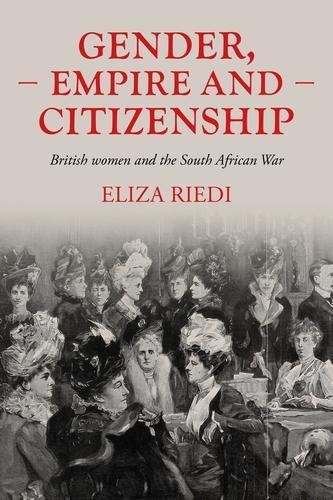
Gender, Empire and Citizenship: British Women and the South African War
(Hardback)
Publishing Details
Gender, Empire and Citizenship: British Women and the South African War
By (Author) Eliza Riedi
Manchester University Press
Manchester University Press
18th February 2026
United Kingdom
Classifications
General
Non Fiction
Gender studies: women and girls
Colonialism and imperialism
Physical Properties
Hardback
296
Width 156mm, Height 234mm
Description
When the South African War broke out in 1899 British middle-class women, already well-integrated into party politics and public life, were quick to respond. Women across a wide political spectrum, from jingo imperialists to 'pro-Boers', actively engaged in public debates over the war through meetings, speeches, petitions, electioneering, and the press. From the start pacifist women made important contributions to the anti-war movement, later providing vital backing for Emily Hobhouse's campaign to reform the concentration camps. Women imperialists supported the war effort through military philanthropy and imperial propaganda. Under Millicent Garrett Fawcett the government-appointed Ladies' Committee transformed the camps, while hundreds of British women were recruited as camps teachers and nurses. Fundamentally shaped by ideologies of gender and race, women's responses to this imperial war continued to influence women's public action and discourses of citizenship into the First World War.
Author Bio
Eliza Riedi is a Lecturer in Imperial History at the University of Leicester
